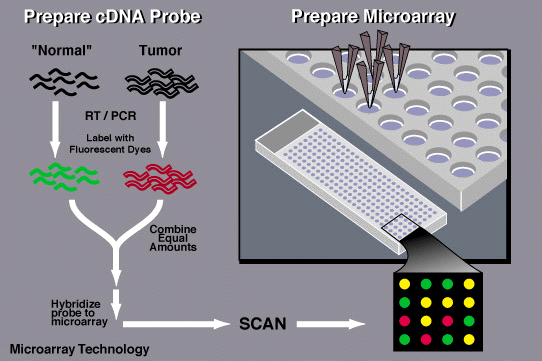

![[ps4]最后的守护者-The Last Guardian | 游戏下载 | 游戏封面](https://gamefaqs.gamespot.com/a/box/5/2/1/103521_back.jpg)
![[ps4]最后的守护者-The Last Guardian | 游戏下载 | 游戏封面](https://gamefaqs.gamespot.com/a/box/6/1/8/654618_back.jpg)

Gardens of Genes: The Guardianship of Flower Genome
In the realms of genetic engineering, the advent of Flower Genome Protection Project (FGPP) marks a monumental stride, presenting unparalleled opportunities to safeguard the genetic integrity of our cherished flora. This groundbreaking initiative, meticulously crafted by the Flower Genome Institute, orchestrates a symphony of innovative techniques to preserve the vibrant tapestry of life that adorns our planet.
Embarking on this extraordinary journey, FGPP endeavors to decipher the intricate genetic blueprints of an astounding array of plant species, amassing a vast repository of knowledge that will forever alter the course of botanical conservation. Empowered by cutting-edge sequencing technologies, this ambitious project meticulously unravels the genomic secrets that govern each plant's unique traits, paving the way for targeted interventions that will bolster their resilience and adaptability amidst an ever-changing environment.
At the heart of FGPP lies a profound reverence for the profound interconnectedness that weaves together all living organisms. Recognizing the crucial role that plants play in sustaining the delicate balance of our ecosystems, the project's unwavering mission is to protect and nurture the genetic diversity that underpins the very fabric of life on Earth. By safeguarding the genetic heritage of our flora, we not only ensure the survival of countless species but also safeguard the invaluable services they provide, from purifying our air and water to providing sustenance for countless creatures.
Beyond its profound ecological implications, FGPP holds immense promise for advancing agricultural practices, ushering in an era of sustainable and resilient food production. By unlocking the genetic potential of our crops, scientists can tailor them to withstand environmental stresses, increase yields, and enhance nutritional value, thereby mitigating global food insecurity and promoting the well-being of communities worldwide.
The FGPP's unwavering commitment to open data sharing and collaboration fosters a spirit of unity among researchers across the globe, enabling the collective advancement of knowledge and innovation. This collaborative approach empowers scientists to pool their expertise, share groundbreaking discoveries, and synergize their efforts toward a shared vision of a future where the genetic treasures of our flora are safeguarded for generations to come.
Unveiling the Advantages of Flower Genome Protection
The Flower Genome Protection Project (FGPP) offers a multitude of advantages that are poised to revolutionize the field of plant conservation and beyond. These advantages encompass:
Enhanced Conservation Strategies
FGPP empowers conservationists with an unprecedented level of genetic information, enabling them to develop targeted and effective conservation strategies tailored to the unique needs of each plant species. By deciphering the genetic blueprints of endangered plants, scientists can identify and prioritize those most vulnerable to extinction, directing conservation efforts with greater precision and efficiency.
Accelerated Crop Improvement
Unlocking the genetic secrets of crops holds immense potential for accelerating crop improvement, paving the way for the development of new varieties that are better adapted to withstand environmental stresses, pests, and diseases. This has far-reaching implications for global food security, as it can significantly increase crop yields and reduce reliance on harmful pesticides and fertilizers.
Novel Medicinal Discoveries
FGPP opens new avenues for the discovery of novel medicinal compounds. By analyzing the genetic diversity of medicinal plants, researchers can identify promising candidates for drug development and uncover hidden therapeutic properties that may lead to groundbreaking treatments for various diseases.
Preservation of Genetic Heritage
In an era where human activities are rapidly altering the planet's ecosystems, FGPP serves as a vital safeguard for preserving the genetic heritage of our flora. By collecting and storing genetic material from a wide range of plant species, the project creates a living library that can be utilized to restore damaged ecosystems and prevent the extinction of rare and endangered plants.
Navigating the Disadvantages of Flower Genome Protection
While the Flower Genome Protection Project (FGPP) presents a myriad of advantages, it is essential to acknowledge potential disadvantages that warrant careful consideration:
Resource-Intensive Endeavor
Undertaking a project of such масштаб requires substantial financial investment and extensive human resources. The cost of DNA sequencing, data analysis, and long-term storage can be a limiting factor, particularly for developing countries with limited research budgets.
Ethical Concerns
The manipulation of plant genomes raises ethical concerns that demand thoughtful consideration. Modifying the genetic makeup of plants has the potential to create unintended consequences, disrupting ecosystems and potentially harming other organisms. It is crucial to proceed with caution and engage in thorough risk assessment before implementing genetic modifications.
Data Security and Privacy
The vast amount of genetic data generated by FGPP raises concerns about data security and privacy. Ensuring the confidentiality and responsible use of this sensitive information is paramount to prevent misuse and protect the privacy of individuals and organizations involved in the project.
Flower Genome Protection for Elderly Individuals: A Comprehensive Guide
Recognizing the unique needs of elderly individuals, the Flower Genome Protection Project (FGPP) has developed a tailored approach to safeguard the genetic diversity of plants that hold particular significance for this population. These plants may possess medicinal properties, provide sustenance, or hold cultural and sentimental value.
| Characteristic | Implication for Elderly Individuals |
|---|---|
| Medicinal Plants | Preserving the genetic diversity of medicinal plants ensures the availability of natural remedies for age-related ailments, promoting overall well-being and quality of life. |
| Nutritional Plants | Safeguarding the genetic diversity of nutritional plants ensures access to nutrient-rich foods that support healthy aging and prevent chronic diseases. |
| Culturally Significant Plants | Protecting the genetic diversity of culturally significant plants preserves the heritage of traditional practices and provides opportunities for intergenerational knowledge transfer. |
| Sentimental Plants | Preserving the genetic diversity of plants with sentimental value allows elderly individuals to maintain cherished connections to their past and loved ones. |
Frequently Asked Questions: Addressing Concerns about Flower Genome Protection
To address common concerns surrounding the Flower Genome Protection Project (FGPP), we present a series of comprehensive answers to frequently asked questions:
1. How will FGPP impact the natural evolution of plants?
FGPP aims to preserve the natural genetic diversity of plants, not alter it. By understanding their genetic makeup, scientists can develop strategies to protect and restore endangered species, ensuring their survival in the face of environmental challenges.
2. Is FGPP safe for human consumption?
The FGPP focuses on protecting the genetic diversity of plants, not modifying them for human consumption. Any future applications of genetic modification will undergo rigorous safety assessments to ensure the well-being of individuals and the environment.
3. How will FGPP benefit future generations?
By preserving the genetic diversity of plants, FGPP ensures that future generations have access to the same natural resources and ecosystem services that we enjoy today. It safeguards our planet's biodiversity for the well-being of all living organisms.
Embracing the Future of Flower Genome Protection: A Call to Action
The Flower Genome Protection Project (FGPP) presents a pivotal opportunity to shape the future of plant conservation and reap its myriad benefits. By embracing this initiative, we can:
Empower Conservationists
Provide conservationists with the tools and knowledge they need to protect endangered plant species and restore degraded ecosystems, ensuring the flourishing of our planet's biodiversity.
Enhance Agricultural Practices
Develop sustainable and resilient agricultural practices that increase crop yields, reduce environmental impact, and contribute to global food security, addressing one of the most pressing challenges of our time.
Foster Scientific Advancements
Accelerate scientific discoveries in the fields of medicine, botany, and ecology, paving the way for groundbreaking treatments, innovative plant-based solutions, and a deeper understanding of the natural world.
Preserve Our Heritage
Safeguard the genetic heritage of our planet's flora, ensuring that future generations can appreciate and benefit from the beauty, diversity, and ecological services provided by plants.
Final Thoughts: A Call for Collaboration and Support
The Flower Genome Protection Project (FGPP) is not merely a scientific endeavor but a testament to our collective responsibility to protect and preserve the irreplaceable treasures of our planet. It is an investment in the future, ensuring that the vibrant tapestry of life that surrounds us will continue to inspire and sustain generations to come. We urge governments, research institutions, and individuals worldwide to join this noble cause, embracing collaboration and sharing resources to make FGPP a resounding success. By safeguarding the genetic diversity of plants, we safeguard the very essence of life on Earth.